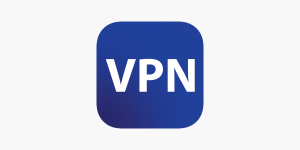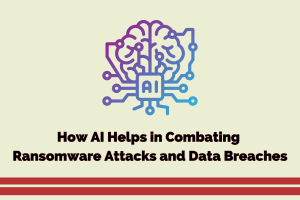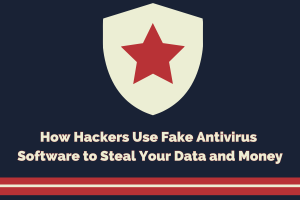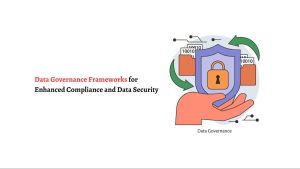Expert Tips for Choosing the Right VPN for Business Security

In the digital age, businesses must take safety measures to secure sensitive information from cyber threats. One way to achieve this is using a virtual private network (VPN).
A VPN may conceal your IP address and provide a connection by encrypting your internet traffic. However, choosing the best VPN service for your business might be difficult with many possibilities.
VPNs with sites in certain countries let users bypass geo-blocks and view material that might not be available in their area.
That’s why ensuring that the VPN service you pick has servers in the area where the content you want to view is available is essential.
Selecting the most suitable VPN ensures your business’s security and seamless operation. The following are straightforward, expert-based recommendations.
What is a VPN?
By establishing an encrypted tunnel between the internet and your device, a VPN protects you from third parties who want to track your online activity and hackers who try to intercept your data.
Additionally, VPNs may conceal your location by hiding your IP address. After establishing a connection with a VPN server, your device behaves like it shares a local connection with the VPN. As a result, websites will identify your surfing location as the geographic region of the server rather than your real location.
Why Is VPN Important For Business?
Businesses must utilize VPNs because they provide security while being mobile. VPNs allow mobile workers and remote users to safely access business resources with an Internet connection, like an intranet, apps, databases, etc., from anywhere.
VPN technology safeguards your organization’s infrastructure using security features like complex authentication procedures and encryption. It helps remote workers to access resources without unauthorized access.
Remote workers, sales and support teams, and other mobile workers may greatly benefit from virtual private networks (VPNs), which provide safe and efficient access to business resources over any high-speed internet connection.
The Benefits Of A VPN
Access Geo-blocked Sites
Without a VPN, your location and Internet Protocol (IP) address are accessible. Your IP address identifies your device’s location, no matter where you go or what you do online, which prevents you from accessing regionally unique material.
Not all online services are universally accessible. Certain streaming services, for instance, are accessible only in certain localities. Various websites and services restrict users’ access or visibility based on location.
Depending on where you are located, company websites might limit your access to their services or cut down on information regarding their operations. A VPN enables you to access a regional server, which allows you to browse while keeping your IP address and geographical data confidential. Your internet actions will be almost imperceptible.
Boosts Productivity
VPN boosts company productivity. VPNs allow workers to access business resources and services from anywhere as if they were on-site. Remote connections promote flexibility and reduce physical presence requirements in today’s mobile and global corporate environment.
Virtual private networks (VPNs) change the way we think about work. With the advent of remote access, workers are no longer limited to working within the confines of an office. That way, you may respond quickly to company demands without wasting time traveling. Because remote work is not hindered by physical location, the ability to access the network remotely leads to greater efficiency and production.
Improved Network Scalability
Expanding a private network is expensive. Virtual private networks (VPNs) allow companies to provide secure, multi-user network access with a single login for in-house and distant personnel. Anyone with the right credentials can safely access a VPN network from anywhere.
Employees who work remotely or travel for business may find this helpful. With a virtual private network (VPN), you may access the network from any location and be certain that your data is secure. You may execute numerous apps in a secure cloud environment using a VPN. Feel free to extend this network to your heart’s content.
Secures Data
Other individuals may be able to intercept and utilize sensitive information you input online for malicious reasons. A VPN with 256-bit encryption can avoid this. If your data is intercepted, all that will be displayed are strings of gibberish.
You may utilize the encrypted network from anywhere to thwart hackers. Nothing will be visible to anybody, not even your Internet service provider. Instead, data sent by the VPN server will be encrypted and sent to them.
Stop Bandwidth Throttling
When your ISP or another person with influence over the operation of your Wi-Fi network purposefully slows down your internet speed, this is known as bandwidth throttling. Sometimes, you do this when you go to certain websites or undertake specific online activities. Your device’s mobile traffic may be secured using a digital VPN service. The encryption prevents other people from seeing the websites you are viewing.
If your ISP cannot see the data traveling to and from your device, they cannot restrict it. Sites and activities may occasionally cause bandwidth limiting, but they may limit your internet at particular times of day to free up bandwidth for other users.
Most workers and anyone using your internet connection won’t be throttled, but a VPN may hide data transactions and prevent the potential.
Prevent Network Tracking
Certain websites and applications can silently monitor your online activities without your knowledge. They are gathering data about you as they follow you around. Ultimately, they employ that information to disrupt your online experience by displaying intrusive pop-up ads.
It does not matter who is attempting to infiltrate your system or torment you with constant advertising. When you use a VPN, the information you transmit and receive will be secure and anonymous.
Reduce costs
Cloud computing architecture saves users a lot of money on support services. In an on-premises environment, the in-house IT department is usually responsible for the server’s performance and maintenance. The server’s performance, the throughput of all workers, and the presence of viruses or hackers may be monitored for hours.
How to Choose the Right VPN?
Here’s a list of VPN features to consider when choosing one for your business:
Seamless Management
A low-administrative-and operational-cost, centrally-managed modular system is what any company would like. Regardless of the variety of mobile devices your staff uses, you should have no trouble managing their VPN clients and connections. Because of the potential influence on your security and compliance needs, you must also choose how to handle your encryption keys.
Logging And Privacy
VPN logging refers to the practice of documenting VPN activity. Thus, your VPN provider may access all your online activities using those records. You should still be certain that your VPN will not access or sell your internet use data, even though most reputable companies will not.
If you look at your VPN service’s privacy policy, you will discover information on their logging activities. Additionally, you should determine whether or not you need logging as a component of any security audits or compliance obligations that you may be subject to.
Monitoring and Managing Activity
If you look at your VPN service’s privacy policy, you will discover information on their logging activities. Additionally, you should determine whether or not you need logging as a component of any security audits or compliance obligations that you may be subject to.
Tech Support
Technical support will be necessary for your virtual private network, as with any other technological device. You should evaluate whether you possess the in-house expertise to resolve VPN connection issues or whether your outsourced technical support team can resolve them.
These should be your primary alternatives, as you cannot afford to delay a day or two for a resolution while your employees cannot access the requisite resources. It is also essential to evaluate whether you require support on weekends or around the clock. You should not pay an additional fee for 24/7 support if you are unlikely to require assistance after hours.
Final Thoughts
Choosing the right VPN for business security is important to enabling secure remote access and data safety. Factors such as security, dependability, performance, ease of use, cost, customer care, and compatibility should be evaluated when choosing a VPN.
Get a VPN provider with high uptime, a no-logs policy, a kill switch feature, DNS leakage protection, and robust encryption.






